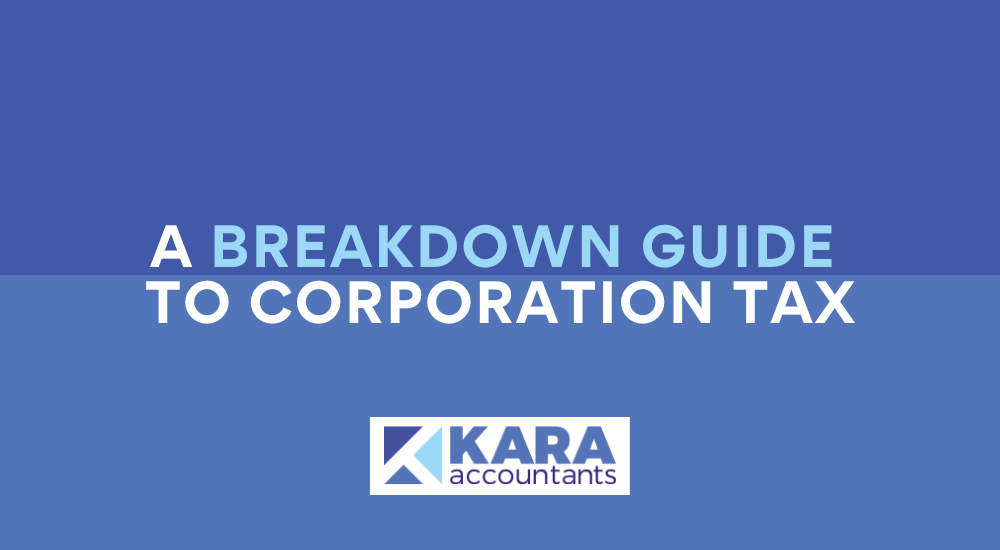
A Breakdown Guide to Corporation Tax
In the ever-evolving landscape of business and finance, staying informed about the intricacies of taxation is crucial for business owners, entrepreneurs, and financial professionals alike. One significant aspect of the UK’s taxation system is corporation tax – a levy imposed on the profits of limited companies and certain organisations. As of 2023, understanding the nuances of corporation tax is more important than ever. In this blog post, we’ll break down the key concepts and recent developments surrounding corporation tax in the UK.
What is Corporation Tax?
Corporation tax is a direct tax levied on the profits of limited companies, as well as other organisations such as clubs, associations, societies, and some unincorporated entities. The tax is based on the profits generated during a company’s accounting period, which can be different from the financial year. It’s important to note that corporation tax is separate from other taxes such as income tax, which applies to individuals.
Rate Changes and Current Rates
As of 2023, the standard rate of corporation tax in the UK stands at 19%. However, there have been significant changes announced by the government. A notable development is the plan to increase the corporation tax rate to 25% for companies with profits exceeding £250,000. Companies with profits between £50,000 and £250,000 will face a tapered rate.
Digital Services Tax
In response to the increasing digitalisation of the economy, the UK introduced the Digital Services Tax (DST). This tax applies to specific digital business models, targeting companies that generate revenue from search engines, social media platforms, and online marketplaces. The DST is designed to ensure that these tech giants are contributing their fair share of taxes to the UK government.
Research and Development (R&D) Tax Relief
Encouraging innovation and research has been a priority for the UK government. R&D tax relief offers companies an opportunity to claim tax credits on qualifying R&D expenditures. This incentive is aimed at promoting technological advancements and growth within various industries. It’s important for eligible companies to understand the criteria for claiming R&D tax relief and the potential benefits it offers.
Loss Relief
Companies that experience financial losses may be eligible for loss relief. Losses incurred during an accounting period can be offset against profits of the same period, carried back to previous accounting periods, or carried forward to offset against future profits. Understanding the rules surrounding loss relief can help companies manage their tax liabilities during challenging times.
Making Tax Digital (MTD)
The UK’s Making Tax Digital initiative continues to transform the way businesses report and manage their taxes. As of 2023, VAT-registered businesses with a taxable turnover above the VAT registration threshold are required to use MTD-compatible software to keep digital records and submit VAT returns.
Transfer Pricing and International Taxation
For multinational corporations operating in the UK, transfer pricing regulations are of paramount importance. These rules prevent companies from manipulating prices and shifting profits to reduce their overall tax liability. With international tax avoidance coming under increased scrutiny, compliance with transfer pricing regulations is crucial to avoid penalties and reputational damage.
Staying informed about these aspects will not only ensure compliance with the law but also help businesses make informed financial decisions that align with their growth strategies. Whether you’re a business owner, a financial professional, or an aspiring entrepreneur, keeping up with the latest developments in corporation tax will be an essential part of your financial journey in the UK. To learn more about Corporation Tax, please do get in touch. We’d be happy to help!

This Post Has 0 Comments